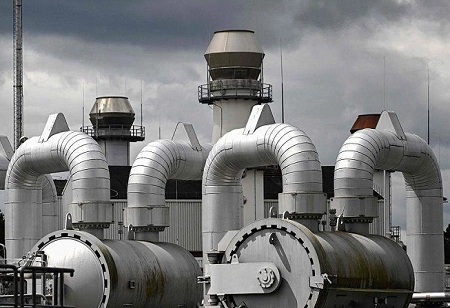India is considering creating a strategic reserve of liquefied natural gas to protect against future price increases or supply shortages, according to a senior executive at the country's major importer. As per Vinod Kumar Mishra, financial director at Petronet LNG Ltd., the government "suggested we should have greater storage room for LNG so that we should store, and provide, when there is a crisis."
"We have witnessed the situation, and the administration also found it challenging to secure supply." Following Russia's invasion of Ukraine, which upended the market and caused prices to soar, India reduced LNG imports last year. High prices have proven to be a hurdle for some companies, despite Prime Minister Narendra
Modi's administration's goal to more than quadruple the amount of petrol in the nation's energy mix. As LNG becomes a bigger part of the world's energy mix, more countries are trying to establish emergency LNG stocks, comparable to the oil industry's strategic reserves. One of the largest buyers in the world, Japan, stated last year that it is thinking about a similar scheme.
Petronet is building additional tanks at its LNG import terminals to store the imported fuel, and is developing a floating import plant in the eastern state of Odisha, according to Mishra, even though storage targets have not yet been negotiated. Long-Term Contracts Indian buyers are looking for long-term supply agreements to secure delivery to clients at more consistent rates as a result of last year's squeeze, according to Mishra. He predicted that some of these agreements would be finalised in 2023.
The 7.5 million tonne per year deal between Petronet and Qatar is up for renegotiation and expires in 2028. According to Mishra, the New Delhi-based company wants to increase the contract by up to 1 million tonnes. However, Mishra said that the current collapse in spot prices roughly 80% from August is revitalising the market for transactions that require rapid delivery. To speed up purchases, prices will need to drop to around $6 to $7 per million British thermal units, he noted. According to dealers, the Asian spot benchmark closed above $12 on Friday. The Indian market, according to Mishra, is price-sensitive. It is not reliant on a single fuel type. Any cheaper fuel can be used instead.
